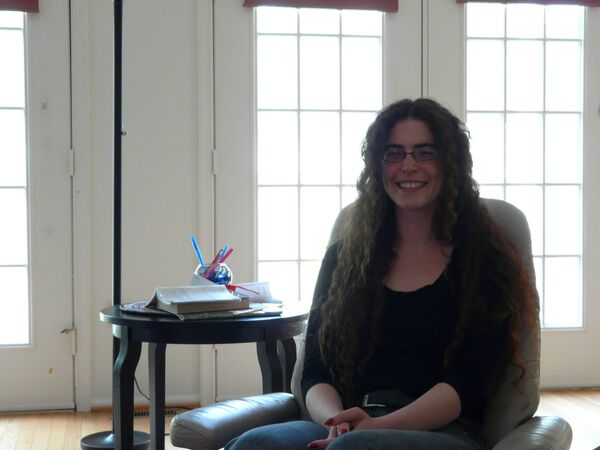Like many of us who suffered geometry at school, the mere mention of the word math often sends me into a mild state of panic. Nevertheless, I often find myself reaching for useful, math-related phrases having to do with multiplication or subtraction while speaking Russian, and coming up empty.
So, first of all, some of that math anxiety (or arithmophobia to give it its fancy dictionary name), may come from childhood memories of having to solve a problem at the blackboard.
While in English we solve problems, Russian uses the verb решать: Я понимал тему, но коленки у меня тряслись от перспективы решать задачу у доски. (I understood the topic, but my knees shook at the thought of having to do/solve the problem at the blackboard.)
While this verb has several meanings, Russians often choose the primary when translating into English, which is why you hear a lot of English learners mistakenly say decide a problem.
Moving along to multiplication, I often find myself wanting to say things along the lines of this was 10 times better than that. If you’re talking strictly mathematically, you’ll use умножить – you can see the obvious root of много (many) in this verb.
The formal way to talk about multiplication is to say: Четыре умножить на два равно восьми. (Four multiplied by two makes eight.) You can be shorter, informally, by simply pausing in the appropriate place: Четыре умножить на два – восемь.
For smaller numbers, it’s also quite common to use the instrumental form to shorten things even further: Девятью девять – 81. Because numbers are the worst bane ever to fall upon the learner of Russian, keep in mind that numbers two through four are an exception, following the pattern дважды, трижды, четырежды: Трижды три – девять. (Three times three is nine.) Or if you are the authorities in 1984, дважды два – пять.
But if you’re looking for the times of casual comparative speech mentioned above, you can’t really use any of these structures, but should go with phrases using раз: Его первый фильм был в десять раз лучше. (His first film was 10 times better.)
In addition, if you’re talking about a living thing reproducing itself, you want the verb размножаться: Оказалось, вирус способен размножаться не во всех клетках, а только в иммунных, отвечающих за защиту от инфекций. (It turned out that the virus was not able to multiply in all cells, just those responsible for protection from infection.)
Division and fractions also take us to some confusing places. If you’re dividing something in half, it seems fairly simple: Двадцать разделить на два равняется десяти. (Twenty divided by two equals 10.) Side note – when expressing any equation, in place of равняется we can also use the adverb равно, or будет: Пять плюс пять равняется/равно десяти or будет десять.
Okay, so 20 divided in half was not a problem, but consider the following headline: В России дорог в два раза меньше, чем нужно. Now, even more advanced Russian students of English often slip up and say: Russia has two times less roads than it needs, instead of Russia has half as many roads as it needs.
It gets very unclear, for an English speaker, when you get into something like: Наш доход сократился в два раза. (Literally – our income decreased by two times. Correct translation: Our income decreased by 50 percent/We have half the income we did last year.)
Ideally things would be going in the other direction, with income growing exponentially, but that doesn’t seem to be in the global financial cards.
If you’re talking squares, exponents can be expressed with квадрат or степень: Десять в квадрате/Десять во второй степени. (Ten squared/ Ten to the second power.) Anything higher than a third power (десять в кубе – 10 cubed) has to be expressed with степень: Десять в четвертой степени. (Ten to the fourth power.)
Interestingly, Russian doesn’t use exponents to talk about rapid growth; it uses geometric progression, of which I had no memory from high school math – its a sequence of numbers where you multiply each by the same fixed number to get the next in the series (2, 6, 18, 54).
So where a native English speaker would say: The number of drug addicts in our country is growing exponentially, a Russian speaker would say, У нас в геометрической прогрессии растет количество наркоманов.
Now there’s a geometry problem that really gives me the heebie-jeebies.
The views expressed in this article are the author’s and may not necessarily represent those of RIA Novosti.
The Russian Tongue: Blind chickens and one-eyed kings
The Russian Tongue: Hair today, Chavez tomorrow
The Russian Tongue: What drives Russians round the bend
The Russian Tongue: Bookworms and bestsellers
The Russian Tongue: Baby talk and Russian gangsters
The Russian Tongue: Werewolves in epaulettes (and other bloodsuckers)
The Russian Tongue: Is there a doctorate in the house?
The Russian Tongue: Down ‘n’ dirty in the springtime
The Russian Tongue: How to lose friends and annoy people
The Russian Tongue: When sorry is the hardest word
The Russian Tongue: Minding your Russian Ps and Qs
The Russian Tongue: Bombing your way around Moscow
The Russian Tongue: Making merry with Father Frost
The Russian Tongue: The big freeze
The Russian Tongue: Talking Tolstoy
The Russian Tongue: Let me hear your body talk
The Russian Tongue: There is nothing like a dame
The Russian Tongue: Babes and babushkas
*
Learning Russian but finding the lessons too formal? In her entertaining column The Russian Tongue, Sara Buzadzhi gives practical informal tips on everything from dealing with traffic cops to flirting in the grocery store. Sara’s columns are published with permission of www.themoscownews.com, where they appear every two weeks.
Sara Buzadzhi is an English teacher and translator in Moscow.



